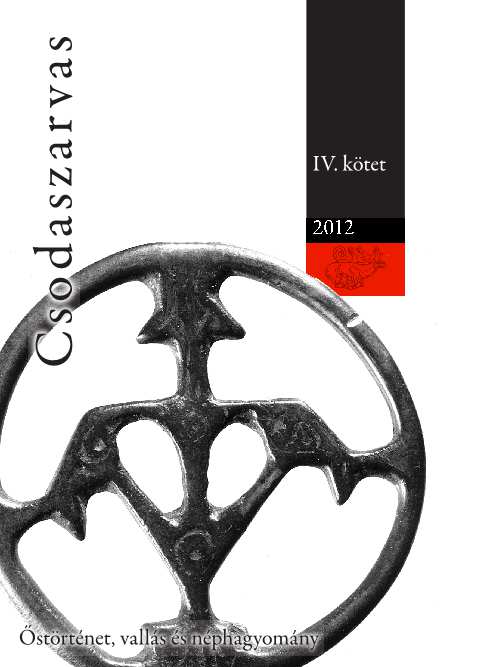
We kindly inform you that, as long as the subject affiliation of our 300.000+ articles is in progress, you might get unsufficient or no results on your third level or second level search. In this case, please broaden your search criteria.


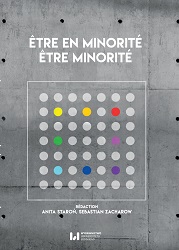
In his plays Jean Anouilh often raised the issues of discrimination, intolerance and the dominance of certain social groups over others. Minorities, however, were commonly portrayed in a negative light, and their striving for equality was mocked. It is not surprising then, that the attitude of the author aroused some controversies.In several of the plays which were analysed in this article, Anouilh in an interesting manner reverses the dominance dynamics between the minority and the majority to reveal certain universal truths about humans. He shows in a satirical way what happens when minority groups neglect or intentionally violate the rights of others in their efforts to achieve equality. Once oppressed they become the oppressors. That leads to the vicious-circle effect and the lack of social order. It seems that Anouilh postulates compromise and mutual tolerance between minorities and the majority, because, according to him, only on the basis of these two values can social justice be built.
More...
A major figure in the Quebec Theater, Marcel Dubé belongs to the generation of the playwrights that introduces the francophone theater to French Canada. Born in 1930, contemporaneous with Michel Tremblay, Jean Barbeau, Antonine Maillet and Michel Garneau, becomes known to the public at large by his play Zone, written in 1953, in a period of a “great political and economic darkness”. Subsequently, Florence from 1957 and An ordinary soldier from 1958, depict a minority of young disadvantaged people; a francophone minority facing all powerful Anglophones. The main characters of these three plays as representatives of an entire generation in the history of Quebec, serve us as an example in order to show a certain reality of francophone Canada.
More...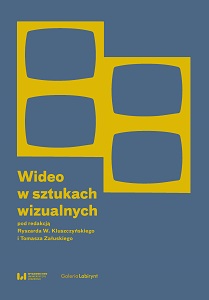


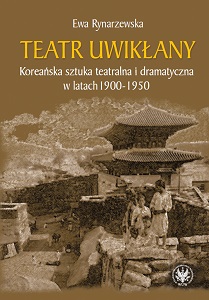
An attempt at analyzing the process of the birth of contemporary Korean theatre. In the first decades of the 20th century theatre underwent radical transformations, as a result of which native performative forms were rejected, traditional theatre genres were modified, and, above all, foreign theatrical and literary models were adapted and turned into the leading artistic paradigm. Korean theatre was elevated to the position of social value and given a new, previously unheard of social dimension, which situated it within the trend of national interests and the social realities of an occupied country.
More...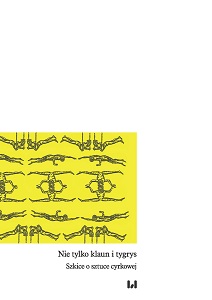
The purpose of the paper is to present actions of the social campaign ‘Circus Without Animals’. More than twenty pro-animal associations from Poland (among others, Basta!, Viva!, and Empatia) established a coalition primarily focused on implementation of a legal ban on the use of animals in circuses in our country. Such solutions have already been introduced in several countries around the world as a result of the impact of civic initiatives. In Poland we still have no comprehensive solutions, however there are a lot of local initiatives in particular cities (for example, the Board of Education in Łodź forbade distribution of tickets to circuses in schools). The coalition, using the slogan ‘We trumpet against circuses’, is involved in educational activities (addressed mainly to children and youth, making up the majority of the circus audience), informing people about feelings and intelligence, but also about suffering of animals used for human entertainment.
More...
What is the circus? The paper is an attempt to define the phenomenon. It refers among others to the Olimpic Circus dating back to the times of Mickiewicz. Next, the melodrama in 3 acts, "Jocko, brasilian monkey" (1825) is being analysed. It was a great stage hit of the 19th century, translated into Polish by Jozef Damse. The Polish premiere was held in the National Theatre in Warsaw (1928), where the monkey’s role was played ‘brilliantly’ by a dancer Heinrich Springer. During a long career of the drama, Stanisław Krzesiński’s acting was also excellent, including the performance on the stage of Stary Theatre in Lublin (for J. Frołowicz’s benefit concert, probably in 1829). The name of the actor looking like a monkey was camouflaged on the poster under ‘three asterisks’.
More...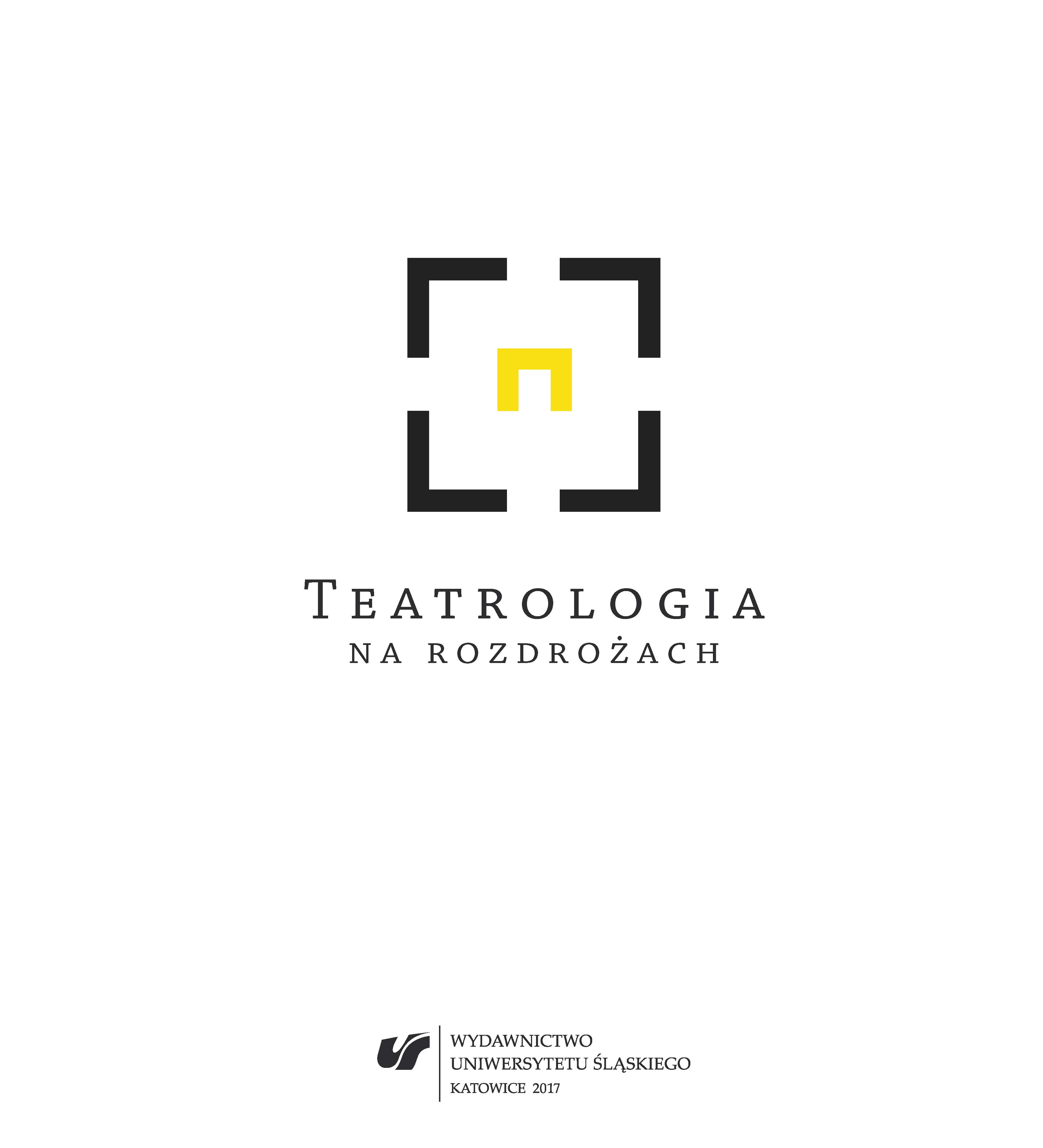

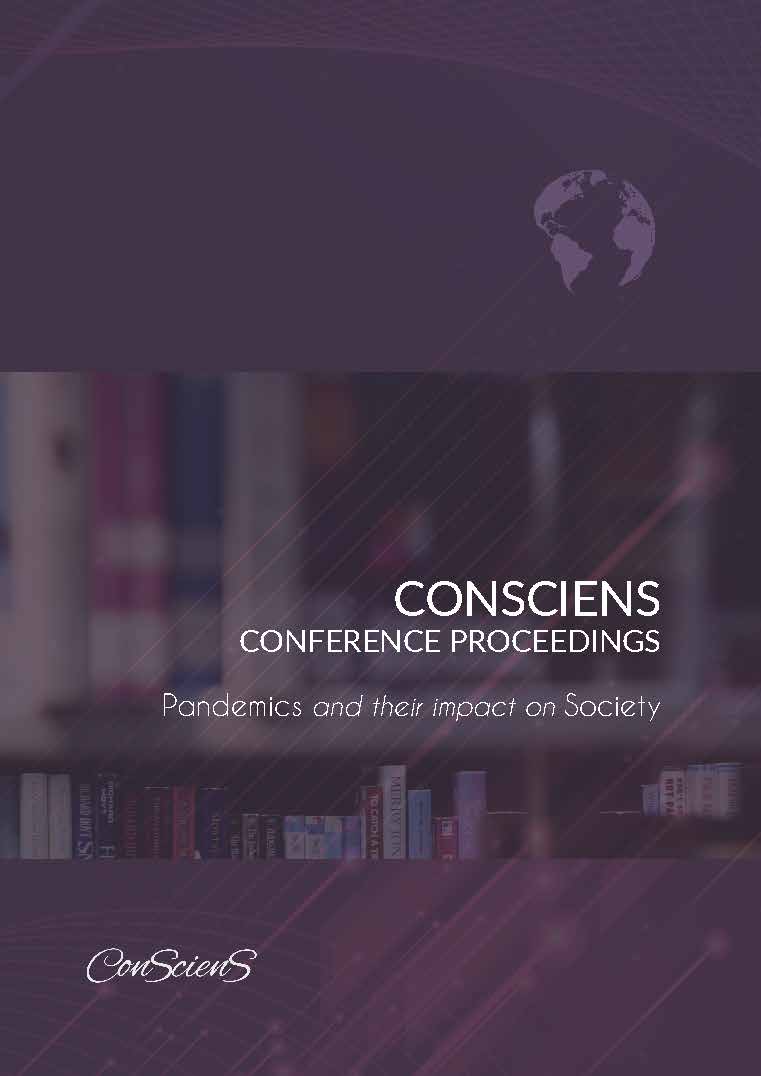
Unfortunately, this year will see a complete different organization of the 23rd edition of the concert in Melpignano, Puglia; it will be held behind closed doors, due to the pandemic that has had a stark impact worldwide, precisely as it strongly affected most regions of Italy. Therefore, the concert will be broadcast on the Italian channel Rai 2 on Friday 28th August at 10.45 pm. The musical performance is a symbol of a tribute paid to the traditional music of Salento. The renowned composer Paolo Buonvino, along with, will bring joy to their viewers admiring the performance from home by including an emotional soundtrack, as the concert takes inspiration mainly from both various musical traditions and the current situation in Salento, thus the two musicians strive to encapsulate the image of people’s misfortunes over the past few months, during lockdown, as everyone seems to have forgotten how to smile lately. Moreover, the accompaniment will also cover a mixture of popular customs of the pizzica dance and the world of cinematography. Two notorious orchestras will be performing from the stage of Melpignano, namely the Orchestra Popolare “La Notte della Taranta” and the Orchestra Roma Sinfonietta. The decision to postpone the live performance of the festival was made in order to avoid further transmission of the COVID-19 virus. At the same time, the festival is dedicated to the lion-hearts who fight against the viral disease. The final concert will be held three years from now, in 2023.
More...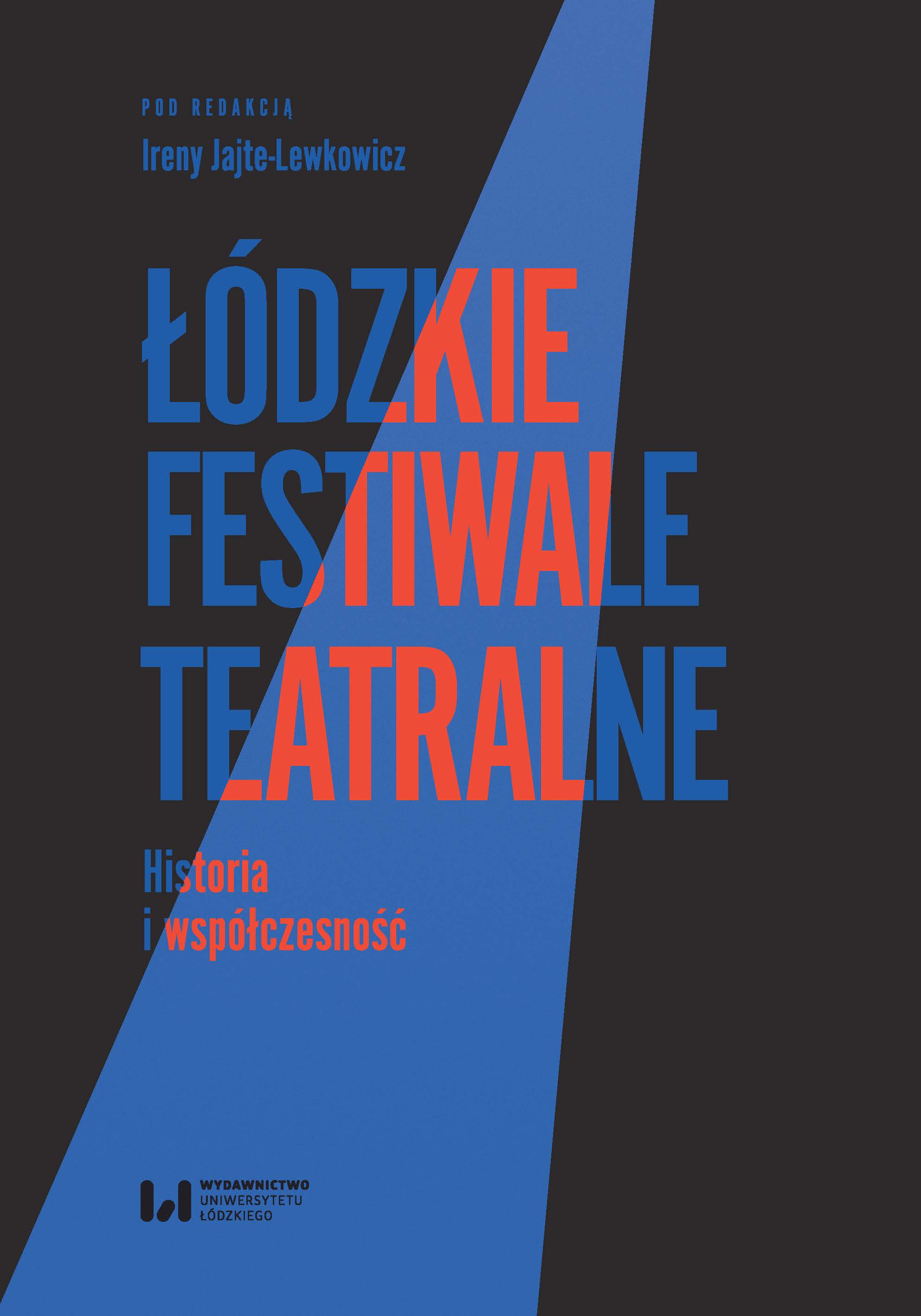
The "Meetings" festival, organized by the Łódź Theater Meetings Foundation, was held three times in Łódź. The Foundation put the main emphasis on the aspect of meeting and exchanging experiences between young independent theater and theaters with many years of experience. An important place was also discussed on new forms and the language of the theatrical alternative. The first edition, which took place in 2010, was to a large extent a manifestation of support for this formula of the festival - all theaters took part in the festival for free. The next two editions, carried out at the Szwalnia Theater in Łódź, were focused on activities on the border of art, often touching on social issues.
More...
The article aims to present the history of the Review od the Amateur Theaters called “ŁóPTA”. This project has been in existence for over 30 years. The event presents the latest projects of amateur and indepentdents theaters from Łódź and other regions of Poland. The review shows the presence of young acting groups, as well as those with large theatrical output that have been working in the country for many years. The next part of the article presents the figure of Marian Glinkowski – called a “human institution,” organizer of theatrical life, a very well-known and valued figure in the independent theater. Formerly director of the Łódź Cultural Center, co-founder of the Łódź Theater Meetings, coordinator of ŁÓPTA. The rest of the article focuses on the differences between amateur and professional theater. Performances and their diversity will be the main topic of the article. It will explain how the how the reality of Poles, our history and current political events shaped the subject matter of the presented and exhibited works. ŁóPTA is an event created on the threshold of great political and cultural changes in Poland, during all the years of its existence, carefully accompanying these changes.
More...
The article presents the history of the International Festival of Plays Pleasant and Unpleasant, held at the Powszechny Theatre in Łódź. The authors described the history and changes of Festival and presented its repertoire line and accompanying cultural events in the years 1994–2016.
More...
In the article author focuses on a problematic, not chronicle, description of the Festival of Theatre Schools, organized since 1983 by Film School in Lodz in cooperation with the most important Polish theatre schools. In spite of problematic approach to topic, author has pointed out the most important organizational and artistic elements of festival. Aim of the article is to critically analyze formula of this event as a celebration and competition. For the purpose of this article author made an interview with actress, in which the character and specificity of this festival is most intensely expressed.
More...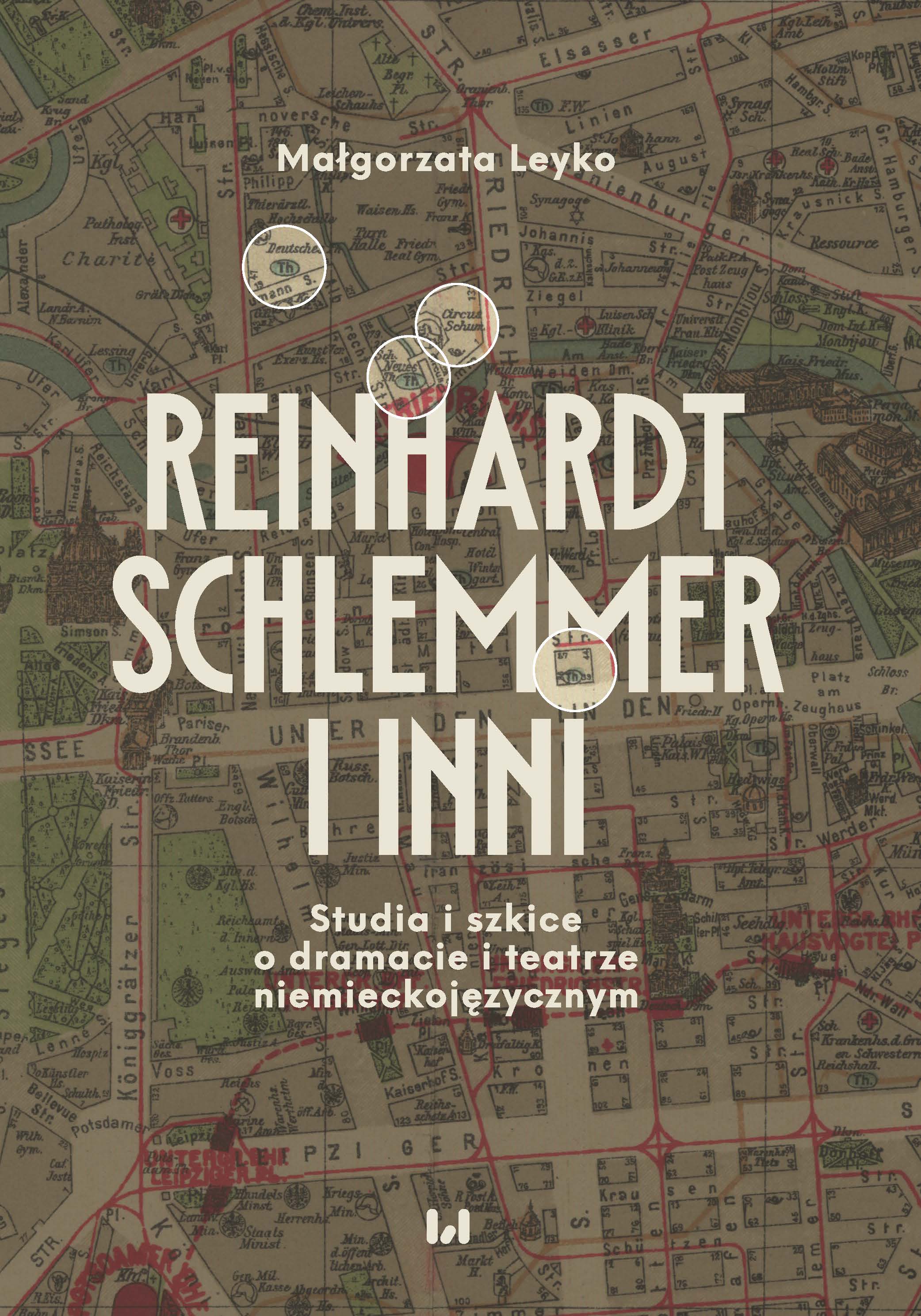
The book consists of fifteen studies and sketches written over the past two decades and devoted to the twentieth century German theatre and Austrian drama. The publication consists of three parts. The first includes sketches on Max Reinhardt's theatre – his mass theatre against the backdrop of the spectacle festive culture in Germany in the 19th-20th centuries, the organization of the theatre companies he owned, and the director's strategies used in Shakespearean productions. In addition, there is a sketch on the Polish reception of Reinhardt's theatre and an article on Pola Negri's roles in the pantomime and the film “Sumurun”. The second block consists of texts on the work of Oskar Schlemmer – his stage explorations, the idea of the new man present in his works and thought, and on contemporary reconstructions of his works. The third block consists of articles on the medium of film in the theatre of Erwin Piscator, two dissertations on the dramaturgy of Friedrich Wolf, a sketch tracking the emigration history of Reinhardt, Piscator and Brecht, and an analysis of the post-war reception of Brecht's plays in Poland. The next texts discuss more recent works – Pina Bausch's dance theatre performance and the dramas by Gert Jonke and Peter Turrini. With reference to one of Turrini's plays discussed, the book closes with an analysis of Johann Nestroy's local farce “On the Ground and First Floors”. All of the studies and sketches included here have previously been published in journals or collective volumes, but when put together they show one important aspect of the author's research interests.
More...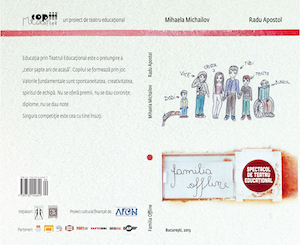
Family Offline is the show of fractured childhood between border parents (parents who go to work abroad) and children who stay at home. Whose parents are the children and how do they mature when mom and dad become a voice on the phone? Who is mother when mother is gone?
More...
The play highlights the history of the Replika Educational Theater Center, a space that has gone through several conversions, starting in 1903, when it housed the first Italo-Romanian Hat Factory, and since 2015 it has become a studio theater.
More...